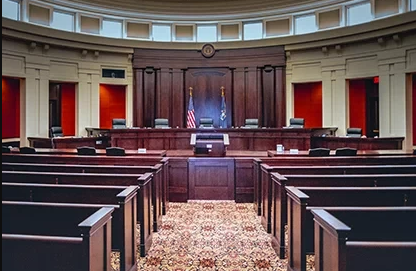Michigan Court orders resentencing for 18 year olds serving LWOP
Decision impacts 264 persons sentenced to LWOP at age 18

The Michigan Court of Appeals ruled Thursday that 264 incarcerated persons sentenced to life without parole when they were 18 years old must have a new chance to argue for a reduced sentence, if not for freedom. In Michigan v. Poole, a 2-1 appeals court panel held that a 2022 decision that struck down life without parole sentences for 18-year-olds also applies retroactively.
In 2022, the Michigan Supreme Court in People v. Taylor held that sentences of automatic life without parole for 18-year olds violate the state constitution. Because of “diminished culpability and increased prospects for reform,” the court explained at the time, children cannot receive life without parole sentences unless the prosecution proves otherwise by clear and convincing evidence. The 2022 decision however left unanswered the question of whether the decision applied to people who were convicted of murder and were already serving life without parole sentences.
“No 18-year old, regardless of whether they were sentenced in 1990 or 2000 or 2010 or 2023 or ’24 should be serving an unconstitutional penalty, an unconstitutional sentence like mandatory life without parole,” Maya Menlo, an attorney with the State Appellate Defender Office, told Michigan Public Radio.
The decision affecting juveniles sentenced to life without parole sentences dates back to a 2012 U.S. Supreme Court decision, Miller v. Alabama, that ruled a mandatory life sentence for youth ages 17 or younger convicted of first-degree murder was a form of cruel and unusual punishment because youth are less culpable and have greater capacity for rehabilitation. A later U.S. Supreme Court decision, Montgomery v. Louisiana, found those protections to apply retroactively to all youth 17 and under who'd received mandatory life without parole.
Over the years, those decisions have led to multiple resentencing hearings where those factors are considered, as well as additional challenges at the state and federal levels successfully seeking to expand the federal ruling, including the 2022 Michigan Supreme Court decision.
Included in the 2022 Michigan Supreme Court decision;
"Life sentences for children run counter to “a clear national trend toward treating juveniles less harshly than adults and extending Miller beyond just the mandatory LWOP context” and they fail to advance rehabilitative goals, as children sentenced to life are given less access to vital educational and rehabilitative programs. Additionally, whether a child sentenced to life will be paroled often has more to do with politics than the child’s maturity and rehabilitation. A person’s meaningful opportunity to gain release is supposed to be measured in terms of their “demonstrated maturity and rehabilitation,” the court wrote, but is instead subject to “the whims of an executive branch policy directive instructing the Parole Board to forgo consideration of all offenders serving parolable life.”
You can read the full decision from the Michigan Court of Appeals -->> Michigan v. Poole










